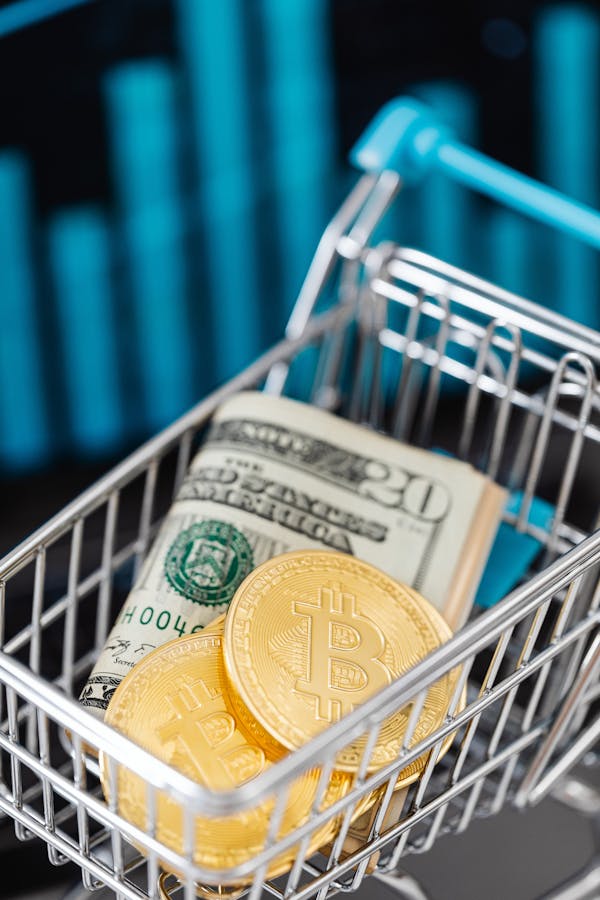A cryptocurrency exchange is a platform that allows users to buy and sell different types of cryptocurrencies. It also offers a variety of trading options and security features.
Users deposit funds into an exchange account, sometimes called a wallet, to make trades. These funds can be denominated in cryptocurrencies or fiat currency. Find out more from the source.
Platforms
Cryptocurrency exchanges enable investors to buy and sell cryptocurrencies in an easy-to-use marketplace. They function similarly to stock exchanges and offer a variety of trading and investment tools. They also have high trading volumes and liquidity, which makes them a great option for institutional traders.

Centralized crypto exchanges require users to provide personal information for know-your-customer (KYC) verification and anti-money laundering (AML) checks. This entails giving the exchange access to your financial records, which some users see as a breach of privacy and against the decentralized ethos of cryptocurrency.
White-label crypto exchange software allows startups to launch a branded cryptocurrency exchange without having to build the platform from scratch, which saves time and resources. These platforms also prioritize robust security features to protect user funds and sensitive data.
Trading options
Trading options on crypto exchanges offer a secure and user-friendly way to trade derivatives, giving you the right (but not the obligation) to buy or sell cryptocurrencies at a fixed price within a specific timeframe. However, these investments are risky and require careful consideration. Leverage is especially important to keep in mind, as it can amplify gains but also magnify losses.
When trading on a crypto exchange, look for platforms that support multiple cryptocurrencies and have low fees. You should also be able to deposit funds using a variety of methods, such as wire transfers and credit cards. It is also a good idea to monitor your trades regularly and use advanced orders to manage risks.
Liquidity
The liquidity available on cryptocurrency exchanges is a critical factor for traders. These exchanges allow users to directly swap cryptocurrencies for one another, without the need for a broker. The exchanges use sophisticated algorithms to match buy and sell orders and to display them on the order book. They also charge fees based on trading volume and provide built-in security measures to protect assets.
In addition to trading cryptocurrencies, some crypto exchanges offer additional services such as staking and lending. This can present a significant risk for investors, especially if the exchange is rehypothecating or commingling their deposits. This practice contributed to the demise of FTX and Voyager, and it’s important for investors to be aware of these risks when choosing an exchange. The best cryptocurrency exchanges will disclose these risks to their customers.
Fees
Cryptocurrency exchanges charge fees for their services, which can add up quickly. You should always check the exchange’s fee schedule before committing to an account. These fees are typically based on whether your order is a maker or taker, and they are charged to cover the cost of liquidity in the market.
Also, be sure to check how easy it is to get in touch with the customer support department. If an exchange is difficult to reach, it may be a sign of illegitimacy or undercapitalization. Finally, it’s important to find out what the exchange does with your assets. Some exchanges will commingle and rehypothecate your assets, which can be dangerous. The exchange should disclose this clearly to its customers.
Security
The security of cryptocurrency exchanges is essential to safeguard user assets, comply with regulations, and build trust. Fortunately, there are several advanced technological solutions available to combat sophisticated cyber threats. By prioritizing security, centralized exchanges can effectively protect their users and ensure long-term success.
Phishing Attacks: Cybercriminals often target exchange users through phishing attacks, which can steal login credentials and private keys. To prevent this, users should practice safe online behavior by accessing their exchange accounts only over trusted networks. They should also refrain from downloading files or clicking on links that could lead to malicious software.
Exchanges should implement multilayer security systems, including firewalls, intrusion detection, and threat monitoring. They should also deploy advanced DDoS protection services and regularly conduct security audits and penetration testing.